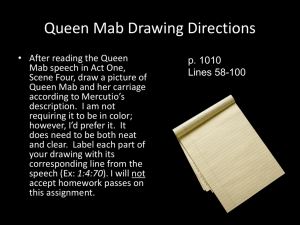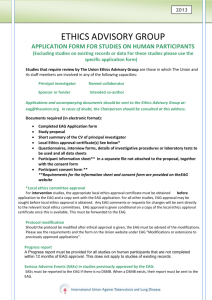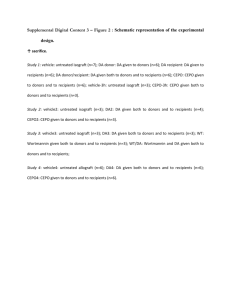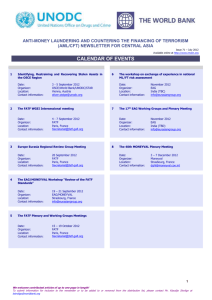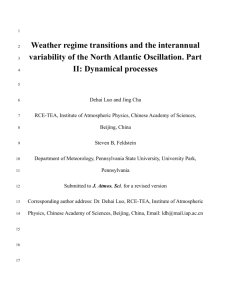Transfer of tolerance to naïve recipients by
advertisement
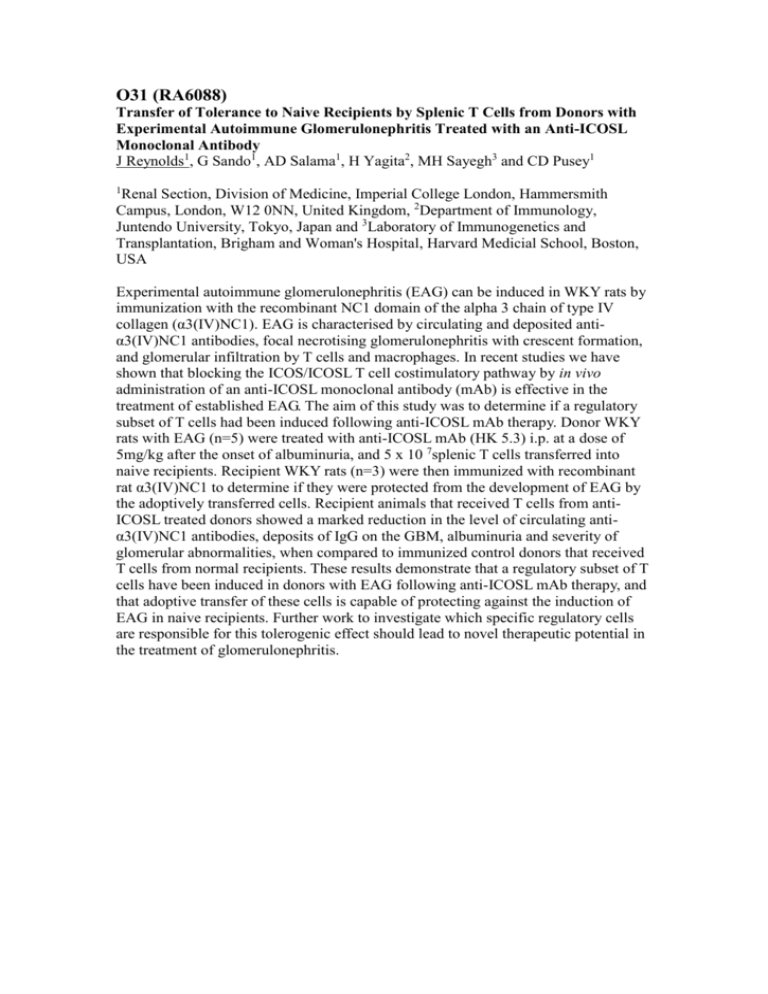
O31 (RA6088) Transfer of Tolerance to Naive Recipients by Splenic T Cells from Donors with Experimental Autoimmune Glomerulonephritis Treated with an Anti-ICOSL Monoclonal Antibody J Reynolds1, G Sando1, AD Salama1, H Yagita2, MH Sayegh3 and CD Pusey1 1 Renal Section, Division of Medicine, Imperial College London, Hammersmith Campus, London, W12 0NN, United Kingdom, 2Department of Immunology, Juntendo University, Tokyo, Japan and 3Laboratory of Immunogenetics and Transplantation, Brigham and Woman's Hospital, Harvard Medicial School, Boston, USA Experimental autoimmune glomerulonephritis (EAG) can be induced in WKY rats by immunization with the recombinant NC1 domain of the alpha 3 chain of type IV collagen (α3(IV)NC1). EAG is characterised by circulating and deposited antiα3(IV)NC1 antibodies, focal necrotising glomerulonephritis with crescent formation, and glomerular infiltration by T cells and macrophages. In recent studies we have shown that blocking the ICOS/ICOSL T cell costimulatory pathway by in vivo administration of an anti-ICOSL monoclonal antibody (mAb) is effective in the treatment of established EAG. The aim of this study was to determine if a regulatory subset of T cells had been induced following anti-ICOSL mAb therapy. Donor WKY rats with EAG (n=5) were treated with anti-ICOSL mAb (HK 5.3) i.p. at a dose of 5mg/kg after the onset of albuminuria, and 5 x 10 7splenic T cells transferred into naive recipients. Recipient WKY rats (n=3) were then immunized with recombinant rat α3(IV)NC1 to determine if they were protected from the development of EAG by the adoptively transferred cells. Recipient animals that received T cells from antiICOSL treated donors showed a marked reduction in the level of circulating antiα3(IV)NC1 antibodies, deposits of IgG on the GBM, albuminuria and severity of glomerular abnormalities, when compared to immunized control donors that received T cells from normal recipients. These results demonstrate that a regulatory subset of T cells have been induced in donors with EAG following anti-ICOSL mAb therapy, and that adoptive transfer of these cells is capable of protecting against the induction of EAG in naive recipients. Further work to investigate which specific regulatory cells are responsible for this tolerogenic effect should lead to novel therapeutic potential in the treatment of glomerulonephritis.

